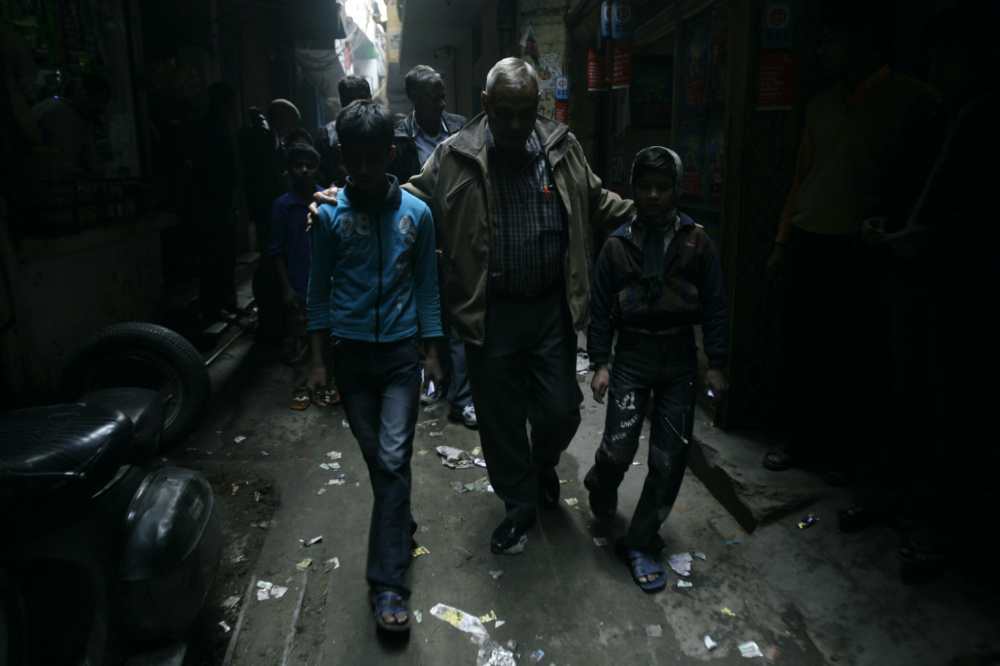Mumbai, India
Thomson Reuters Foundation
The death of an eight-year-old boy whose parents worked as bonded labourers has triggered demands for authorities to crack down on thousands of other suspected cases in nearby villages in central India.
Debt bondage is India’s most common form of slavery despite being outlawed four decades ago, and millions of bonded labourers work in fields, brick kilns and rice mills to clear loans.

In a file photo, bonded child labourers are escorted by a policeman after they were rescued during a joint operation conducted by police and a non-governmental organisation in New Delhi on 10th December, 2009. PICTURE: Reuters/Rupak De Chowdhuri/File photo.
Police said the boy’s parents, who were repaying a 25,000 rupee loan by working on their employer’s farms for five years without pay, lived in a “polythene hut” and were assaulted when they asked for money to take the sick child to a doctor.
“The father had come to register a case against the employer for physical assault, but when we investigated we found it was a case of bonded labour,” said Yogendra Singh Jadon, station house officer, Guna cantonment, where the case was registered.
“When we visited his village, we found the other children were also unwell and took them to the hospital. The family was in a bad shape…it was heart-rending to see how they lived.”
The boy died on Sunday and the couple’s three other children are being treated in hospital for malaria, local labour officials said.
In one of the countries worst-hit by COVID-19, the pandemic has wiped out jobs and eroded the savings of daily wage workers, raising fears that more people will be forced to take loans and driven into bonded labour.
India identified more than 135,000 bonded workers in its last census in 2011 and vowed to rescue and rehabilitate more than 10 million of these workers by 2030.
In the Guna case, the employer, his father and wife were arrested this week on charges of bonded labour and crimes against scheduled caste and scheduled tribes, a term used to describe some of India’s most marginalised communities.
Labour officials said they were still investigating how many more families were in debt bondage in the same village.
Workers’ rights groups urged authorities to carry out an extensive survey to identify other debt bondage victims in Madhya Pradesh state, where Guna lies.
“There are thousands of bonded workers in Guna and the government should conduct a survey,” said Nirmal Gorana, general secretary of non-profit Bandhua Mukti Morcha (Bonded Labour Liberation Front).
Gorana said a case of 450 workers rescued from bondage in Guna and three public interest litigations that they have filed against bonded labour in the region are pending in local courts.





